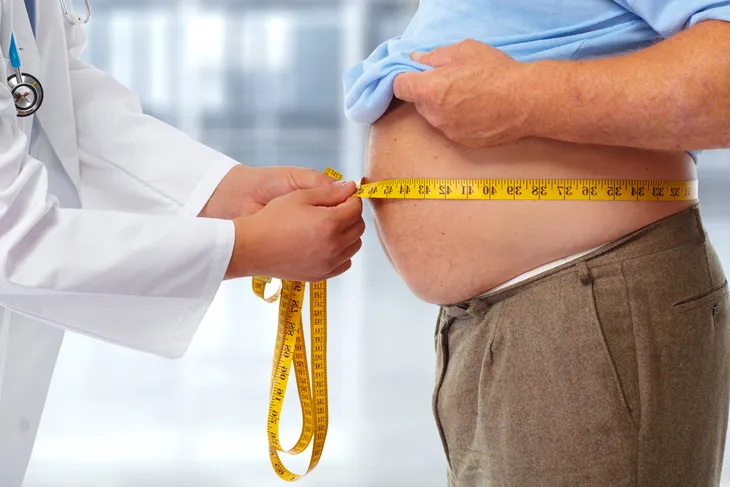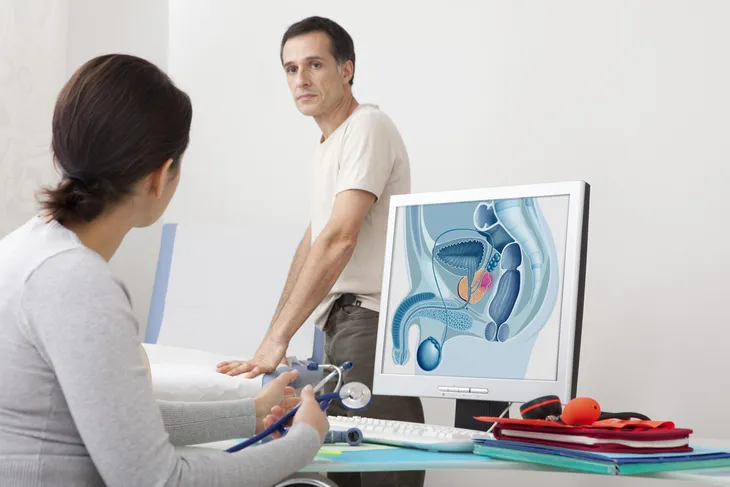Prostate cancer is, unfortunately, a very common disease. It affects only men, with the vast majority of cases in men 40 years or older. It is the most common type of cancer a man can get. Every year, hundreds of thousands of men in the United States are diagnosed with prostate cancer. This is only a small portion of the number of men who have it and remain undiagnosed.
The signs and symptoms of prostate cancer are varied. Two thirds of those suffering from prostate cancer show no symptoms. When signs and symptoms first start, they typically begin with urinary dysfunction. The problems can include painful urination, frequent urination, difficulty urinating, and the need to urinate at night. Blood may be apparent in your urine.
Sexual dysfunction is also symptoms of prostate cancer. The problems can include difficulty achieving and maintaining an erection, and painful or bloody ejaculation. Depending on the location of the cancer, you may also experience both bladder and colon incontinence.
As the cancer progresses, new and more notable signs and symptoms can appear. The cancer can spread to other parts of the body, wreaking havoc and pain. In the later stages of this disease, new symptoms can include bone pain and leg weakness.
As prostate cancer can be difficult to discover from a lack of signs and symptoms, it is important to recognize the risk factors. Here are 10 risk factors of prostate cancer. If you believe you are at risk for prostate cancer, talk to your doctor about additional testing and screening.
Age
Age is a huge factor in your risk for developing prostate cancer. The statistics are shocking. Thirty percent of men 50 and over already have prostate cancer. About 80-percent of men 70-years-old and over have prostate cancer or prostate related issues. On average, the age of diagnosis of prostate cancer is 70-years-old. Generally, the older the man, the greater the risk of developing prostate cancer.
Aggressive forms of prostate cancer can affect men at any age, but this is less common. If you are over 40-years-old, it would be a smart idea to be proactive and get checked.
Genetics
Family history can play a big part of your risk of prostate cancer. If your family has a history of prostate cancer, you may have a greater risk of developing it yourself. Having a close relative with prostate cancer can give you a 2-3 times larger chance of getting this disease.
As of now, there is no specific gene responsible for the elevated risk of prostate cancer. As far as scientists can tell, the answers lie in multiple genes. If you have a family history, consider getting checked.
Diet
It seems that diet can be tied to most illnesses, with prostate cancer continuing this thought. Some studies have found that a diet high in red meat and low in vegetables was linked to an increase risk of prostate cancer. The studies did not find a link between red meat consumption and higher risk, nor was it a link between vegetables and a lowered risk. The best idea is just to eat a varied diet rich in vegetables and lean protein.
Exercise
A new study has found a relationship between exercise and a lowered risk of prostate cancer in caucasian men. The researchers found that men who were moderately to highly active had over a 50-percent reduction in their prostate cancer risk. Men who exercised in any amount had a 13-percent reduction in the risk of the aggressive form of the disease.
This study also found that exercise did not seem to help the risk of prostate cancer in African American men. Regardless of age and race, every man should be aiming to achieve 150-minutes of moderate exercise each week.
Race
Unfortunately, race plays a big role in your risk of getting prostate cancer. African American individuals had a 2.5 times greater chance of dying from prostate cancer. This is likely due to a genetic predisposition to the disease and a lower likelihood of preventative screening and testing.
A recent study looked at different genetic cells in African American and caucasian men to explain the difference. Asian and Hispanic men have a lower risk of developing and dying from prostate cancer.
Weight
Weight has been shown to affect your risk of prostate cancer. Those with a higher body mass index are more at risk of developing aggressive prostate cancer. Those with a lower body mass index have been shown to have less risk of dying from aggressive prostate cancer. Weight does seem to affect your chance of getting the disease and your likelihood of surviving it, if you do.
Nationality
Where you live may play an important role in your risk of prostate cancer. If you live in Asia, East Asia, Central America and South America, you may have a lowered risk. Conversely, if you live in North America, Europe, and Australia, you may have an increased risk. In one study, men who moved from China raised their risk from 2- to 17-percent.
In the United States, different states have different risks also. If you live 40 degrees or higher in latitude, the lower amount of sunlight may make you have an even higher risk of prostate cancer.
Sexual Activity
Thankfully, so far there have been no links between sexually transmitted diseases and an increased risk of prostate cancer. However, some studies have shown that a lack of sexual activity can increase your risk and also prolong the recovery after a prostate surgery.
To naturally lower your risk, aim to ejaculate 3-5 times a week. This can cut your risk of developing the disease by up to 30-percent! The prostate is directly tied to the reproductive organs so working your system out will help keep everything healthy.
Smoking
Smoking is not good for your health in any way, shape, or form. It has strong ties to many types of cancers, including prostate cancer. Recent studies have found a small connection between smoking and prostate cancer risks. There needs to be more corresponding studies to prove this connection. If you are worried about your risk of any cancer, including prostate, quit smoking!
Height
Tall men have something more than bumping into ceilings to worry about. A new study from England has found the taller you are, the higher your risk for developing aggressive cancer upon diagnosis.
The scientists involved in the study spoke about their findings. “A better growth, and possibly a more rapid growth, we find associated with a very modest increase in risk of prostate cancer and a slightly greater risk of more progressive disease.” It seems that taller people are just set at rapid growth rates and this can affect the growth of prostate cancer if diagnosed.













